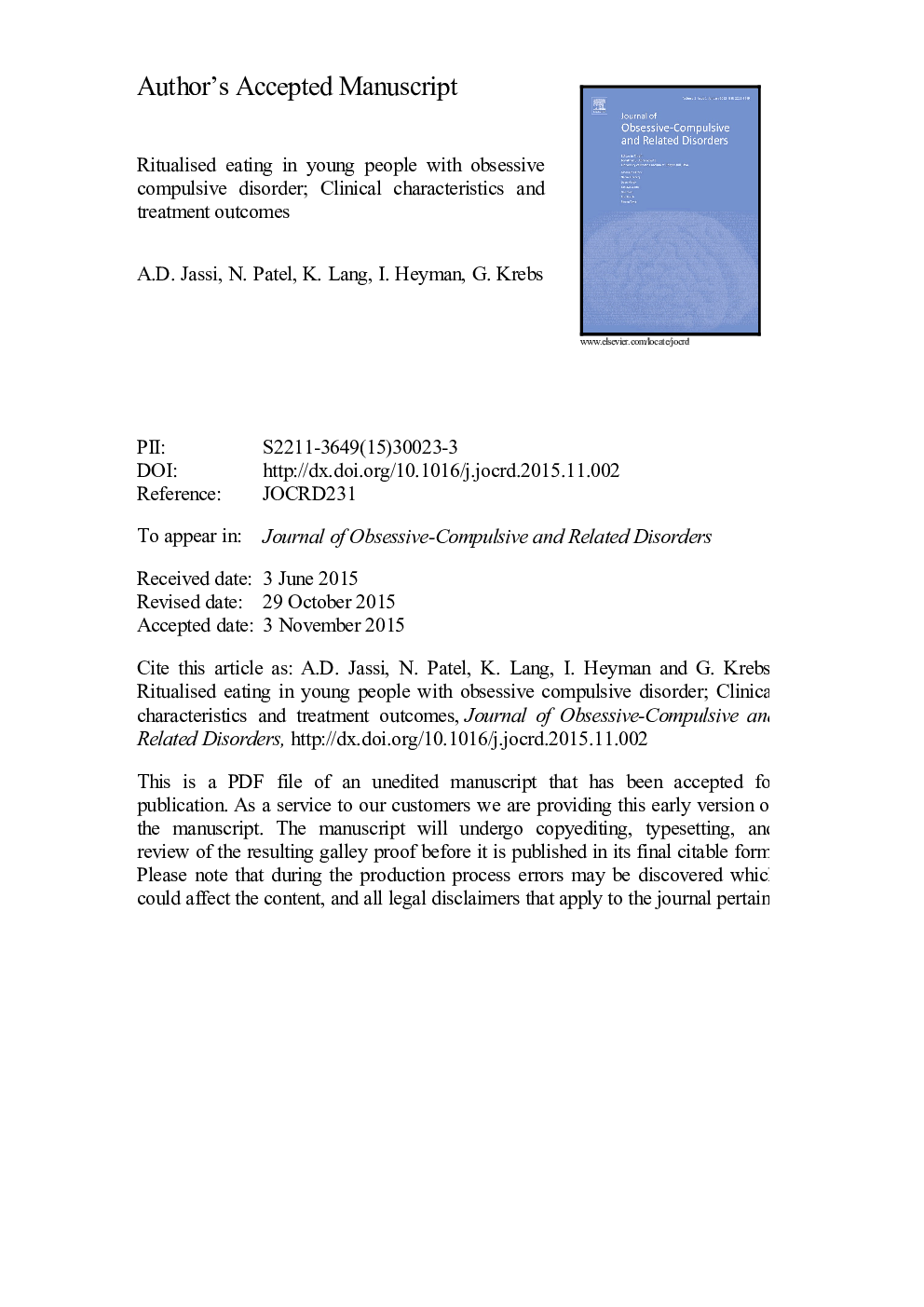| Article ID | Journal | Published Year | Pages | File Type |
|---|---|---|---|---|
| 7269153 | Journal of Obsessive-Compulsive and Related Disorders | 2016 | 20 Pages |
Abstract
Ritualised eating can present as a symptom of Obsessive Compulsive Disorder (OCD) and in some extreme cases can lead to restricted eating causing low-weight. Little is known about the prevalence and clinical significance of ritualised eating in paediatric OCD populations. Participants were 397 patients referred to a specialist OCD clinic. The prevalence, demographic and clinical characteristics as well as treatment outcomes were compared for young people who endorsed ritualised eating on a structured measure (N=101) and those who did not (N=296). Ritualised eating was common with 25% exhibiting this symptom. There were no significant differences in demographic or treatment outcomes between those who did and did not have ritualised eating symptom. However, ritualised eaters had more severe OCD and greater functional impairment. Cognitive Behavioural Therapy (CBT) outcomes for an underweight sub-group (N=10) were compared to a matched healthy weight group (N=10). CBT outcomes were significantly worse in the underweight group. Treatment implications for this group are discussed.
Related Topics
Health Sciences
Medicine and Dentistry
Psychiatry and Mental Health
Authors
A.D. Jassi, N. Patel, K. Lang, I. Heyman, G. Krebs,
